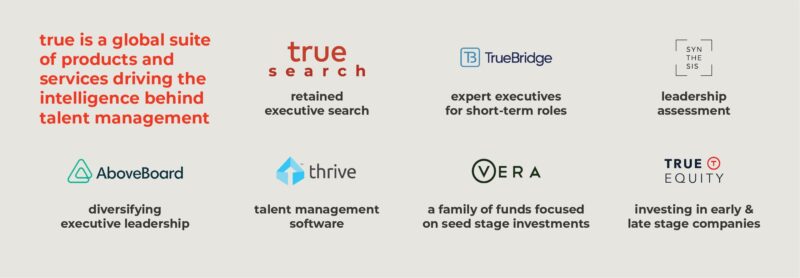Tips for building the connections that can supercharge your career ambitions
Recruiters want you to feel not only in the loop–but also in control. Our goal is to form a relationship that can be truly additive to your career and personal brand–whether it’s through True Search, AboveBoard, TrueBridge, or any of our sister companies. But with busy schedules on both sides, it can sometimes be hard to feel like you’re getting value.
So, how do you take back control and make the most of your relationship with any recruiter? True leaders walk us through the dos and dont’s, and share tips on how to keep connections strong with the recruiter and the hiring committee, even if you don’t get the role.
Establish the connection
1. Start warm
The hands-down best way to meet a new recruiting partner is to target someone that specializes in your industry or function and find a mutual connection to make a warm introduction.
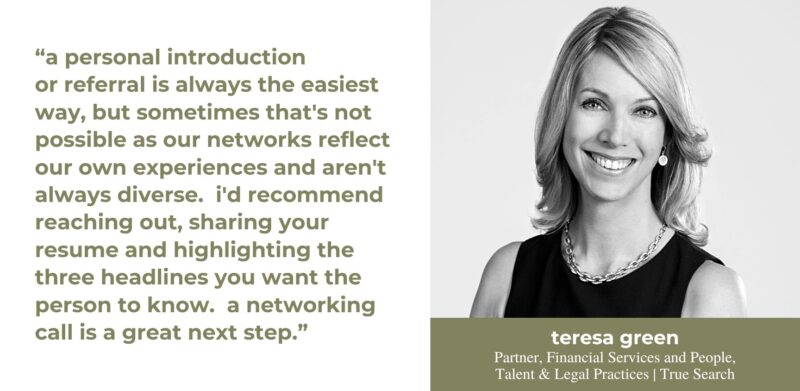
2. Be clear what you want and what you offer
To enable the recruiter to better assist you, have well thought-out career aspirations. Don’t leave it to the recruiter to figure those out for you. Come prepared to speak eloquently and concisely about your achievements, and how you added value in previous roles.
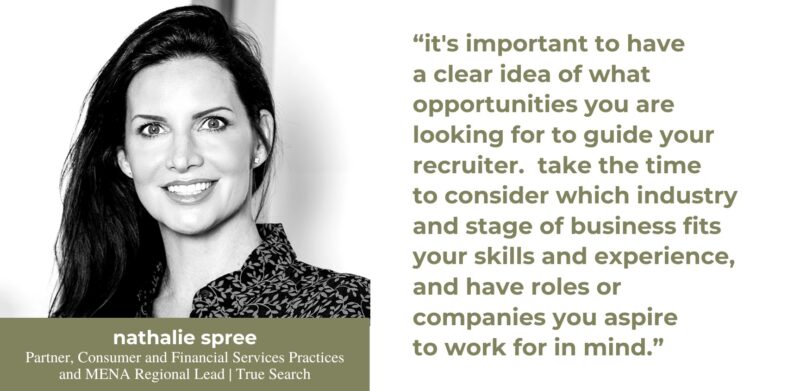
3. Be helpful and ask for help
Recruiters are people-people. They’re usually delighted to tell you about their specialization and what other roles they’re working on. Ask about their needs, and refer them to people in your network. They also enjoy being additive to your professional development and can be great career coaches. Don’t be afraid to ask them about how you should position yourself as a professional.
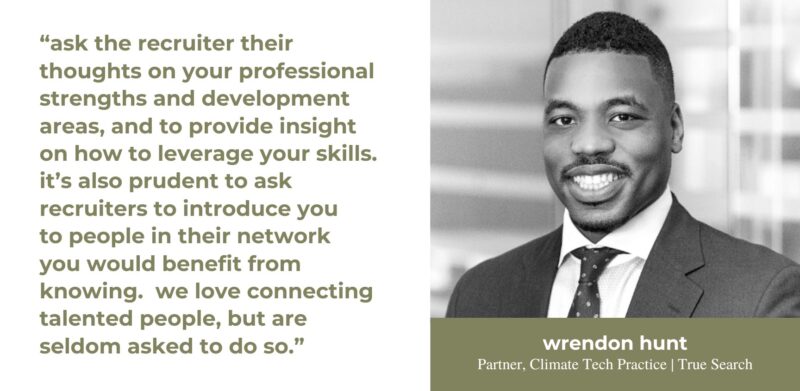
Maintain the connection
1. Be responsive
Prompt and transparent replies leave the right impression. Even an, ‘I don’t know anyone’ is appreciated. And even if you’re not in the job market, take the call anyway. It’s an opportunity to explore your options and offer referrals.
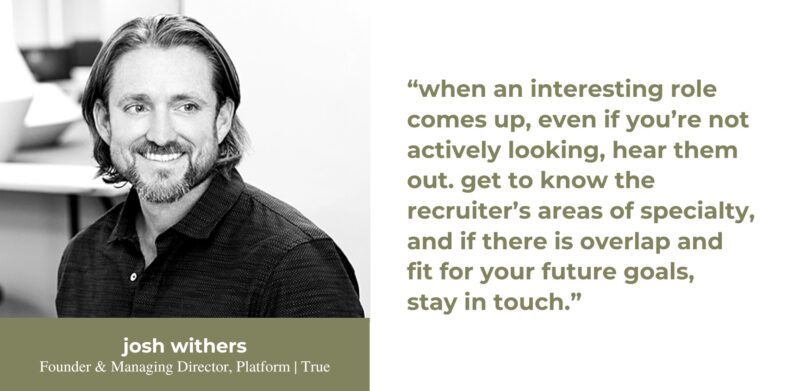
2. Reach out
Sharing your latest job updates or touching base when you’re thinking of a role change helps you stay top of mind for future opportunities. If you want to go the extra mile, it doesn’t hurt to keep tabs on the recruiter’s career path, too. There are a number of acceptable ways to reach out. Linkedin, emails, texts, phone calls or even social media all work.
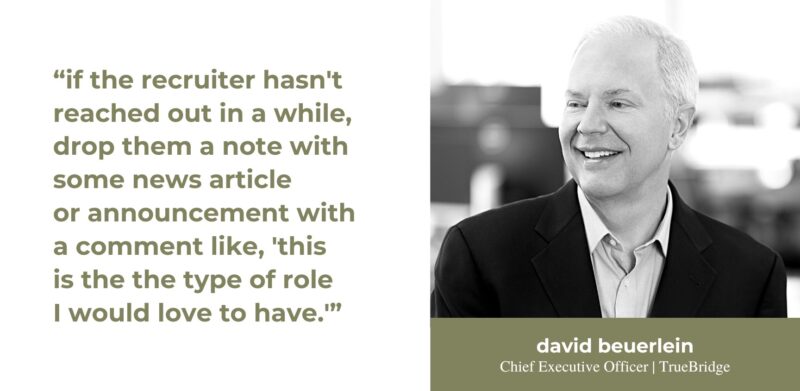
3. Send notes
Sending a thank you note is a lost art, but it’s a critical step to building and maintaining relationships. A thoughtful note goes a long way.
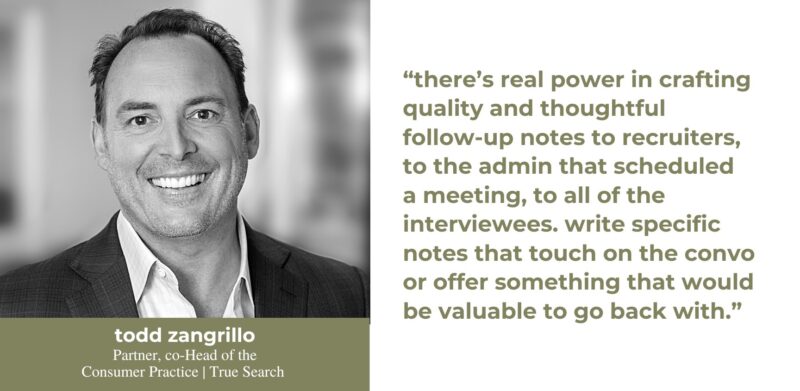
Don’t do this
1. Don’t be impersonal
Target your outreach to someone that specializes in your position or industry and avoid mass emails.
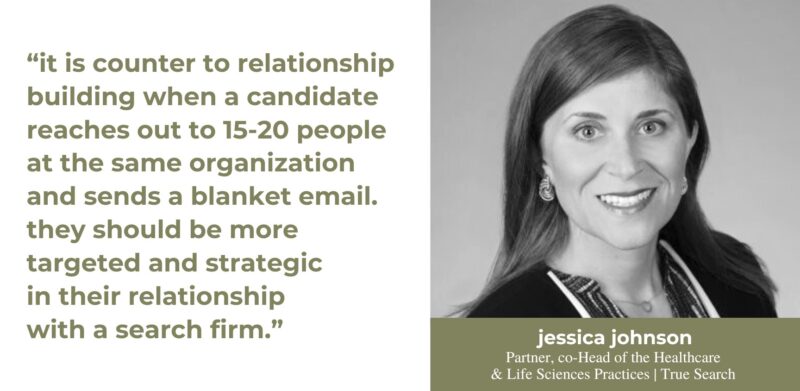
2. Don’t string anyone along
You can’t build relationships by wasting people’s time. Be clear when setting expectations with recruiters about where you are in your job search and if you’re looking at other roles. Being misleading, or worse, backing out of an offer, will seriously backfire. Like any relationship, transparency and authenticity are key.
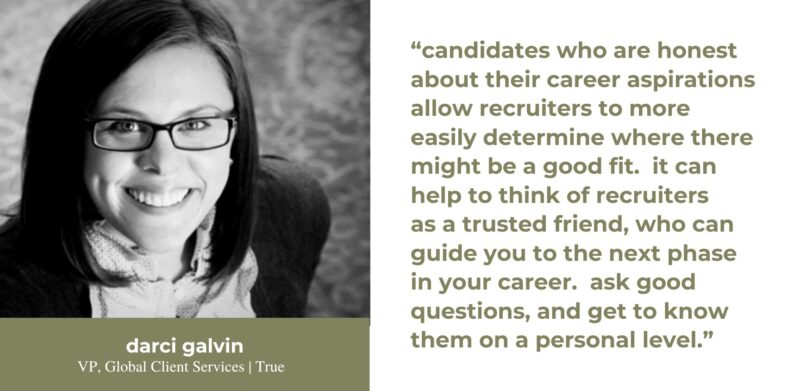
3. Don’t overcommunicate
There’s a difference between staying in touch and being too much. Over communication can potentially be detrimental to the candidate-recruiter relationship and can work against your character perception. But the right level of outreach is maybe more than you think. Healthcare and Life Sciences co-head Jessica Jonson says “candidates should frequently reach out with an update on their career situation or just to touch base. Sometimes that is monthly, quarterly, or if in an active job search, that can even be weekly.”
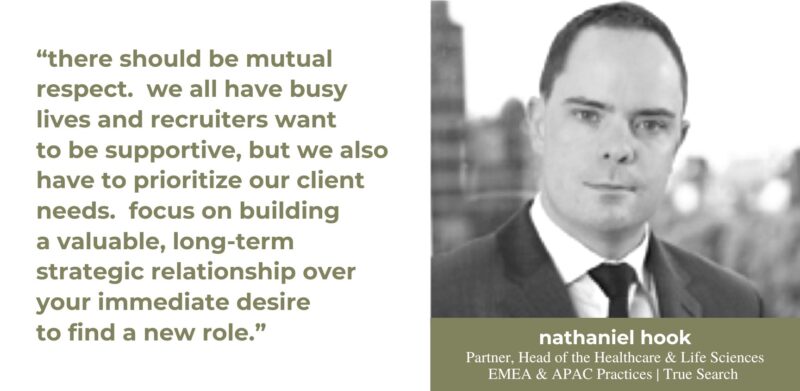
Do this—even if you don’t get the role
1. Use interviews as an opportunity to build relationships
Think of the whole process as an opportunity to develop relationships and remain engaged throughout. The reality is, only one person will ultimately get the role in question. But if you ask great questions and get to know the recruiter and the people you meet vs. treating the process as a transaction, they will think of you for other roles.
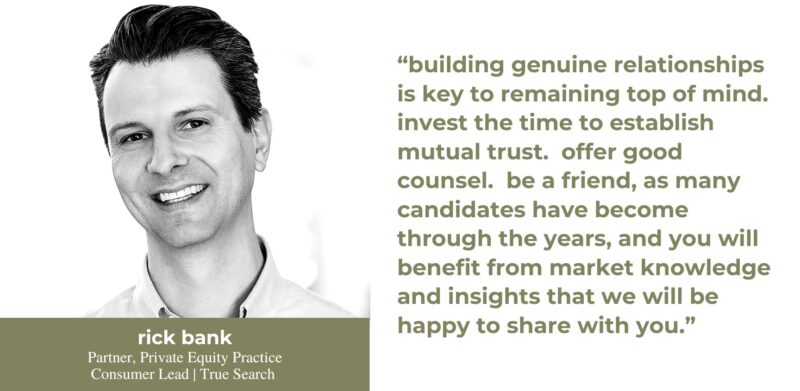
2. Remember, the right match is still out there
Don’t get discouraged and don’t stop believing. The relationships you build with recruiters can help you in the future, even if you don’t land a role at the end of an interview process.
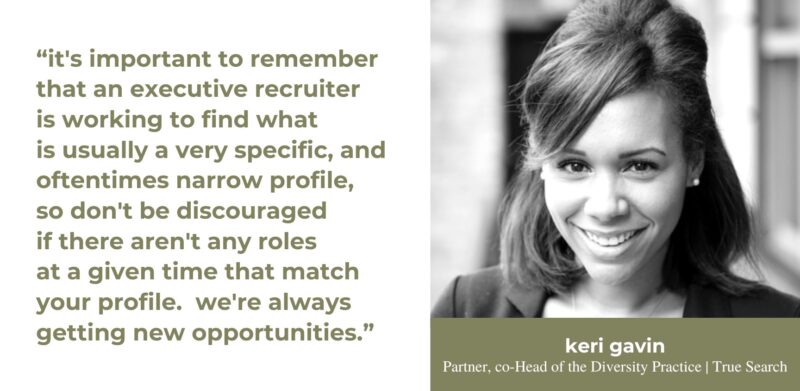
3. Add value
Impress the interview board or CEO you’ve interviewed with with relevant and helpful follow ups after the role is closed. In these stages you are going to be giving rather than taking.
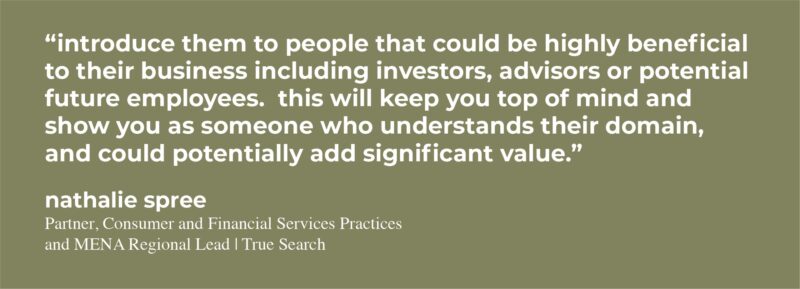
Want to get in touch? hello@trueplatform.com
Contact True leaders in this article: Rick Bank, David Beuerlein, Darci Galvin, Keri Gavin, Teresa Green, Nathaniel Hook, Wrendon Hunt, Jessica Johnson, Nathalie Spree, Josh Withers, Todd Zangrillo.
For True‘s latest thought leadership and data analysis: Subscribe to True Insight.
